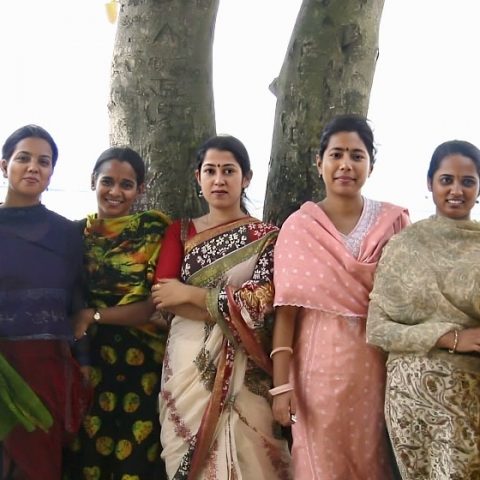Located in the heart of Bangladesh’s capital city, icddr,b’s Dhaka Hospital specializes in the treatment of one condition—diarrhea. Known locally as “The Cholera Hospital”, the facility admits between 250 and 1,000 patients a day. Many patients are from families earning less than US$5 a day. Over half are children under five years of age. As one of the leading public health research institutions located in the Global South, icddr,b has long advocated for the benefits of breastfeeding—which is why mothers with sick children under 6 months of age admitted to its hospital can expect a daily visit from a breastfeeding counselor.
Once of those counselors is Parvin Kathun, who has worked at icddr,b for over 15 years. “Many women discontinue breastfeeding when their child has diarrhea,” she says. “There’s a common myth that breastfeeding causes diarrhea, when in fact nothing could be further from the truth.” It is Parvin’s task to convey to mothers the results of icddr,b’s research: that breast milk is an important component of oral rehydration therapy for infants, which is more effective than other treatment in tackling the severe dehydration that diarrhea can cause. “We try to encourage mothers to exclusively breastfeed their infants until at least six months of age,” says Ms. Kathun. “Sometimes it is difficult – in particular for first-time mothers – to recognize the importance of breastfeeding, and to do it properly. Our breastfeeding clinic provides counseling for these mothers and, in extreme cases, we try to re-initiate lactation in mothers who have abstained from breastfeeding for too long.
The World Health Organization recommends breastfeeding exclusively up to the age of six months minimum, preferably until 24 months. In fact, little more is needed by an infant in these first six months of life, and the nutritional benefits of being breastfed will continue until the child is two years old. Breast milk, even when a mother is malnourished, provides the baby with the nutritional and immune protection needed to ensure benefits later in life, including the essential nutrients that help prevent diarrheal disease and malnutrition. “We provide mothers with extra support, such as counseling, technique training and family counseling, to continue breastfeeding once they leave the hospital,” says Parvin Kathun. “We train doctors, nurses and staff from NGOs around Dhaka in breastfeeding counseling. We hope they will also act as ambassadors to encourage breastfeeding back in their own communities.” “icddr,b has conducted extensive research on the impact of breastfeeding infants until six months,” adds Dr. Tahmeed Ahmed, director of icddr,b’s Centre for Nutrition and Food Security.
“A key study of ours published in the Lancet showed that extra support – both lay and professional – to promote breastfeeding, increased the length of breastfeeding, which contributed to reduced child morbidity and mortality. The benefit breastfeeding brings to the well-being of children in terms of immunity against diarrheal disease, pneumonia, and improved nutritional gains has been well documented.”
“Optimal feeding practices, including breastfeeding, in the first 24 months of life can promote healthy growth in late childhood and development in adulthood.” Dr Ahmed continues. “In fact, the Lancet study to which we contributed revealed that promotion of breastfeeding contributed to averting 21.9 million disability-adjusted life-years (DALYs) in 36 high-burden countries– a reduction of 8.6%; making it the most effective nutrition-related intervention in that study to reduce mortality and growth-stunting. Previous studies have also proven that optimized breastfeeding practices achieved a reduction of 13% in child mortality.”
“icddr,b is committed to finding new ways to encourage exclusive breastfeeding “ Dr Ahmed concludes. “Breastfeeding is more than just nutrition, it is ultimately about empowering women and saving children’s lives.” Research generated by institutions such as icddr,b, have created a strong evidence base that has informed national policies to support mothers breastfeeding. In Bangladesh, the Lancet series was a catalyst for the government to extend the length of maternity leave from four to six months, which Prime Minister Sheikh Hasina announced as a nationwide initiative during World Breastfeeding Week 2009.
Back in the Dhaka Hospital, Ms. Parvin continues her hospital rounds—ensuring that all mothers of infants who have been admitted are aware of the benefits of breastfeeding. “Infants actually need little more than breast milk to provide them with essential immunity, including against certain diarrheal infections, as well as core nutrients,” she says. “We want to give mothers every opportunity to ensure their children grow up healthy.” – See more at: http://www.defeatdd.org/blog/breastfeeding-benefits-behind-biology#sthash.Ocqlf1c0.dpuf

